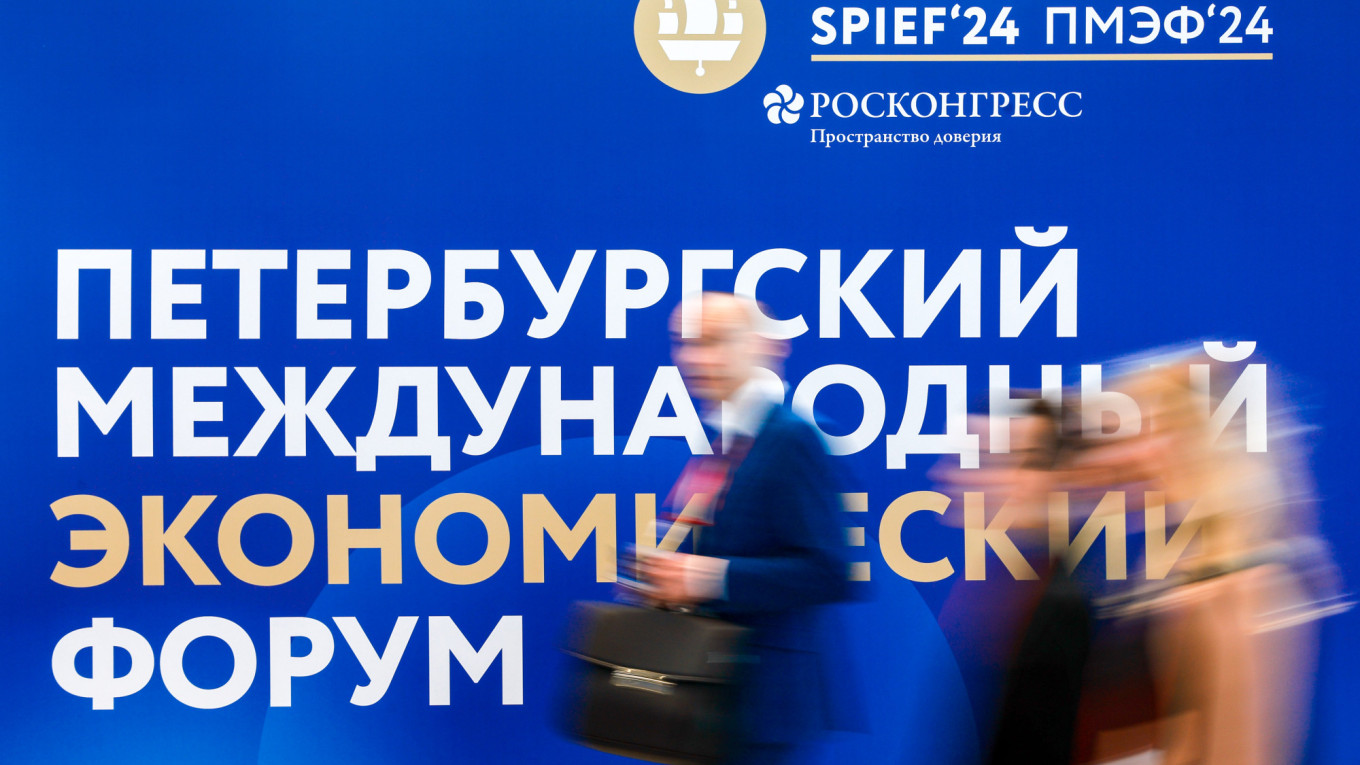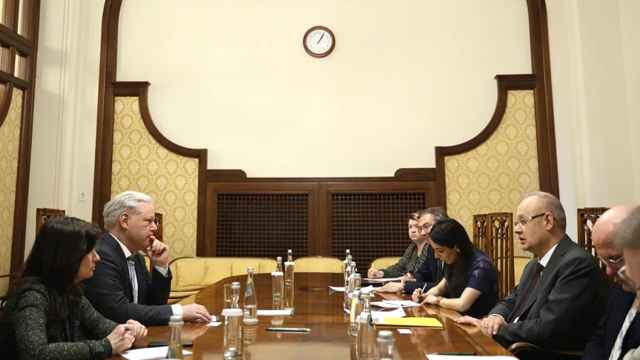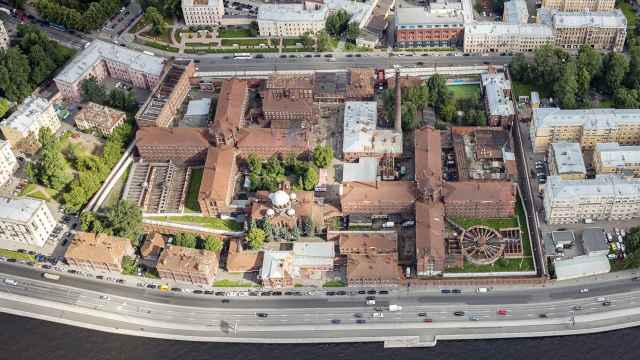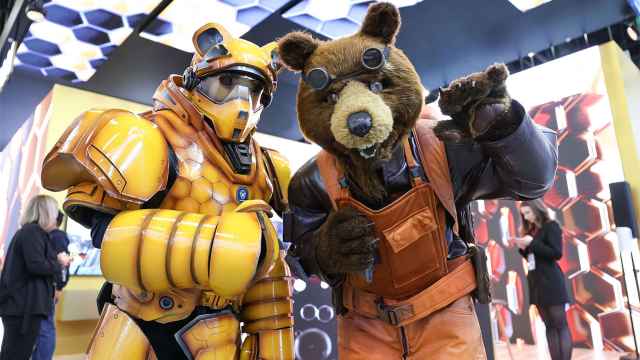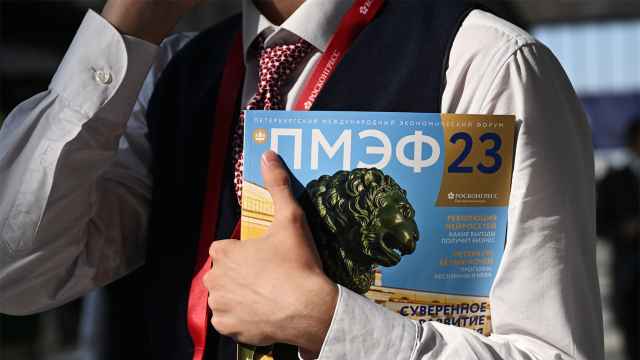The St. Petersburg International Economic Forum (SPIEF), Russia’s premier business and investment event, kicked off in the country’s second-largest city on Wednesday with a focus on Russia’s place in a “multipolar” world, partnerships with the Global South and, increasingly, on domestic business deals.
Once dubbed the “Russian Davos,” SPIEF had long attracted leading Western businesspeople, investors and officials to President Vladimir Putin’s hometown, serving as a venue for major international deals like the Nord Stream gas pipeline.
But since Russia’s 2022 invasion of Ukraine, its lineup has reflected Moscow’s pivot toward Asia and Africa amid its diplomatic and economic isolation from Kyiv’s Western allies.
Despite SPIEF’s diminished global status, it remains an important platform for business today — just mainly at the domestic level, experts say.
While guests from 136 countries are expected to attend SPIEF this year, according to Putin aide Yury Ushakov, prominent Western attendees are notably absent. The highest-ranking guests are the Bolivian and Zimbabwean presidents and the Hungarian foreign minister.
A delegation from the Taliban is also set to attend, despite the organization being formally banned in Russia. Last month, Russian officials moved toward removing the Islamist militant movement that controls Afghanistan from its list of banned “extremist” groups.
“Both the level and representation of international participants at the St. Petersburg Forum have significantly declined since the war, making any comparison with previous years difficult,” said economist Ruben Enikolopov, a professor at Moscow's New Economic School and Barcelona’s Pompeu Fabra University.
“Yet it remains an important platform where the most influential figures from across Russia gather since there is no alternative forum inside Russia,” Enikolopov told The Moscow Times.
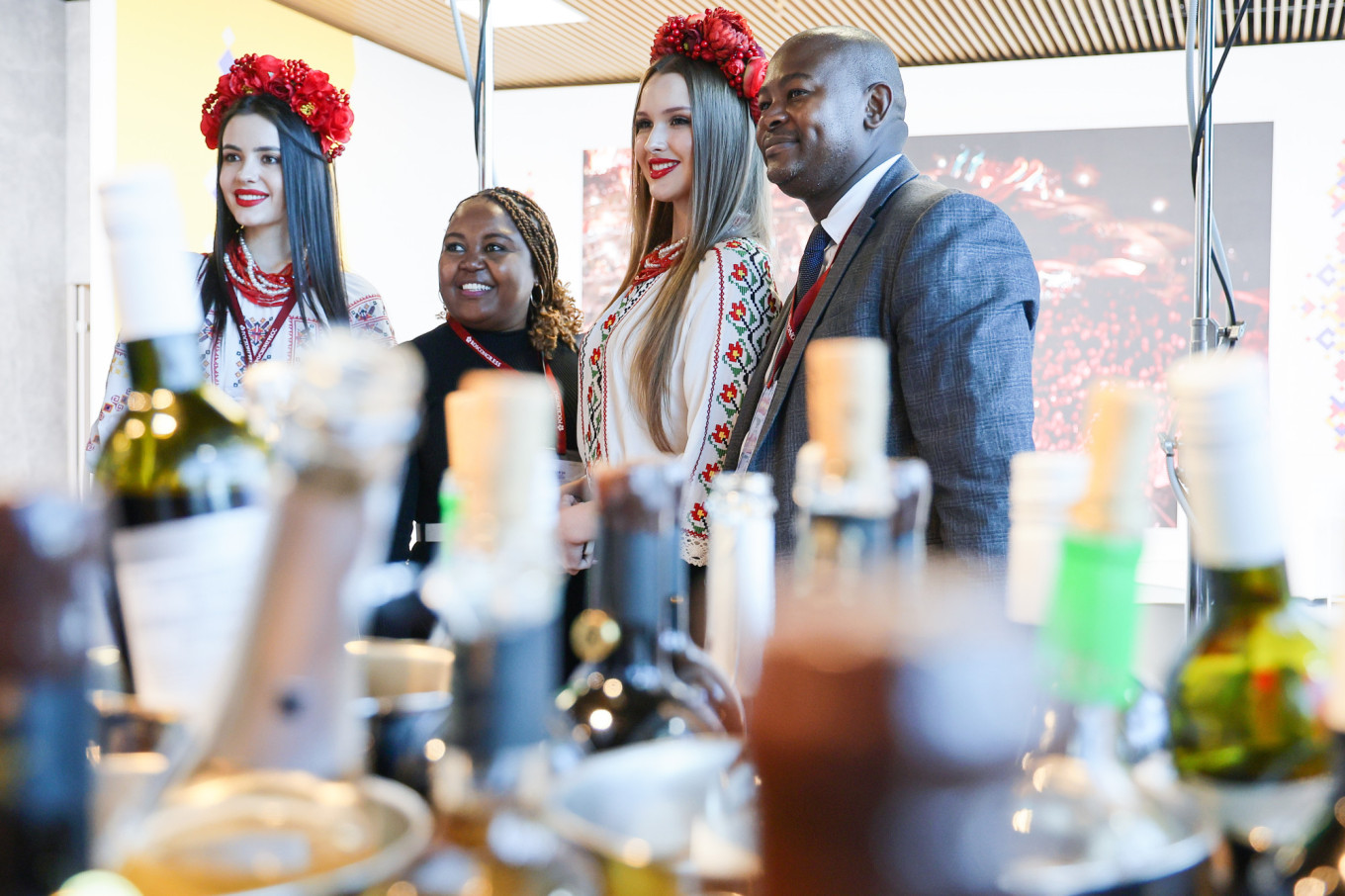
This year’s event lineup also reflects the rising profile of the children of Russia’s aging political elite.
Putin’s alleged daughters, Maria Vorontsova and Katerina Tikhonova, are set to appear as speakers, Bloomberg noted.
Vorontsova, 39, will share a platform with Agriculture Minister Oksana Luth for a session on bioeconomics, while Tikhonova, 37, is slated to join Thursday’s panel about the military’s role in developing Russia’s “technological sovereignty.”
Putin has never publicly confirmed that Vorontsova and Tikhonova are his daughters. According to independent journalist Farida Rustamova, this will be the first time that both of his daughters speak at SPIEF.
Meanwhile, Ksenia Shoigu, the 33-year-old daughter of recently ousted Defense Minister and current Security Council head Sergei Shoigu, will moderate a panel about Russian sports on Friday.
Given that this year’s forum theme is global “multipolarity,” many of its panels will focus on Russia’s “economic sovereignty” and partnerships with BRICS nations.
The summit features panel discussions on strengthening BRICS’ business cooperation and the role of BRICS in ensuring global food security and regional engagements, as well as discussions on the “philosophy and geopolitics of a multipolar world” and the move toward so-called “moral security” in modern society.
Amid the Kremlin’s wider domestic policy built upon “traditional values,” some of the forum’s panels will be dedicated to “family values and traditions as a foundation for sustainable development,” promoting increased birth rates and measures to support young families.
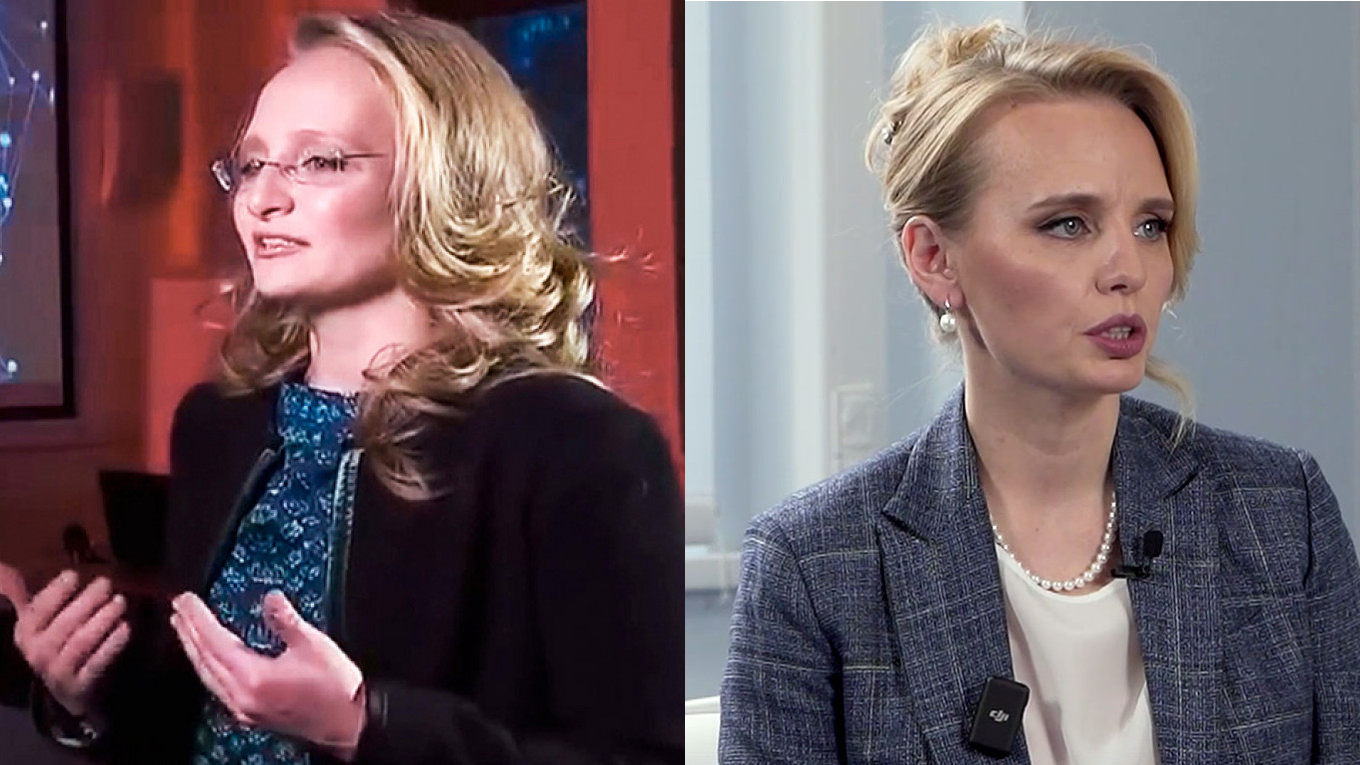
The Kremlin has always sought to nab big foreign names to appear on SPIEF’s guest list and underscore the event’s significance.
Former German Chancellors Angela Merkel and Gerhard Schroder, late Japanese Prime Minister Shinzo Abe, French President Emmanuel Macron and UN Secretary-General Antonio Guterres had all attended SPIEF in the years before the invasion of Ukraine.
Despite the lack of Western heads of state this year, one event — titled “The Empire of Evil: Has the West Successfully Demonized Russia?” — will feature several European and American panelists.
These include former Austrian Foreign Minister Karin Kneissl, who now heads a research center at St. Petersburg State University after moving to the city in 2023, and Tara Reade, a former aide to then-U.S. Senator Joe Biden who also relocated to Russia last year after accusing Biden of sexual assault.
Jackson Hinkle, a conservative U.S. political commentator who has previously voiced support for Putin, is also slated to appear.
Putin will deliver his annual keynote address during the forum's plenary session along with the presidents of Bolivia and Zimbabwe on Friday, the Kremlin said.
On Wednesday, he is expected to meet “heads of world news agencies,” as well as media representatives from countries that Russia deems “unfriendly,” Kremlin spokesman Dmitry Peskov said.
However, despite the presence of foreign guests and journalists, even pro-government experts admit the forum has lost its international status.
According to pro-Kremlin political analyst Sergei Markov, SPIEF “has turned into a domestic Russian event” and is especially popular among "the entire political and economic elite of Russia from St. Petersburg,” with “nearly all [of the political] leadership” traveling to Putin’s native city.
“It’s a combination of a brainstorming of the Russian elite and a summer elite festival in St. Petersburg during the summer nights,” Markov said on his Telegram channel.
Jack Beeching contributed reporting.
A Message from The Moscow Times:
Dear readers,
We are facing unprecedented challenges. Russia's Prosecutor General's Office has designated The Moscow Times as an "undesirable" organization, criminalizing our work and putting our staff at risk of prosecution. This follows our earlier unjust labeling as a "foreign agent."
These actions are direct attempts to silence independent journalism in Russia. The authorities claim our work "discredits the decisions of the Russian leadership." We see things differently: we strive to provide accurate, unbiased reporting on Russia.
We, the journalists of The Moscow Times, refuse to be silenced. But to continue our work, we need your help.
Your support, no matter how small, makes a world of difference. If you can, please support us monthly starting from just $2. It's quick to set up, and every contribution makes a significant impact.
By supporting The Moscow Times, you're defending open, independent journalism in the face of repression. Thank you for standing with us.
Remind me later.



